Actress, director, and filmmaker, Greta Gerwig perfects the female experience via the medium of film. With three successful films under her belt; “Lady Bird”, “Little Women”, and her biggest film yet, “The Barbie Movie”, Gerwig is paving the way for women in film.
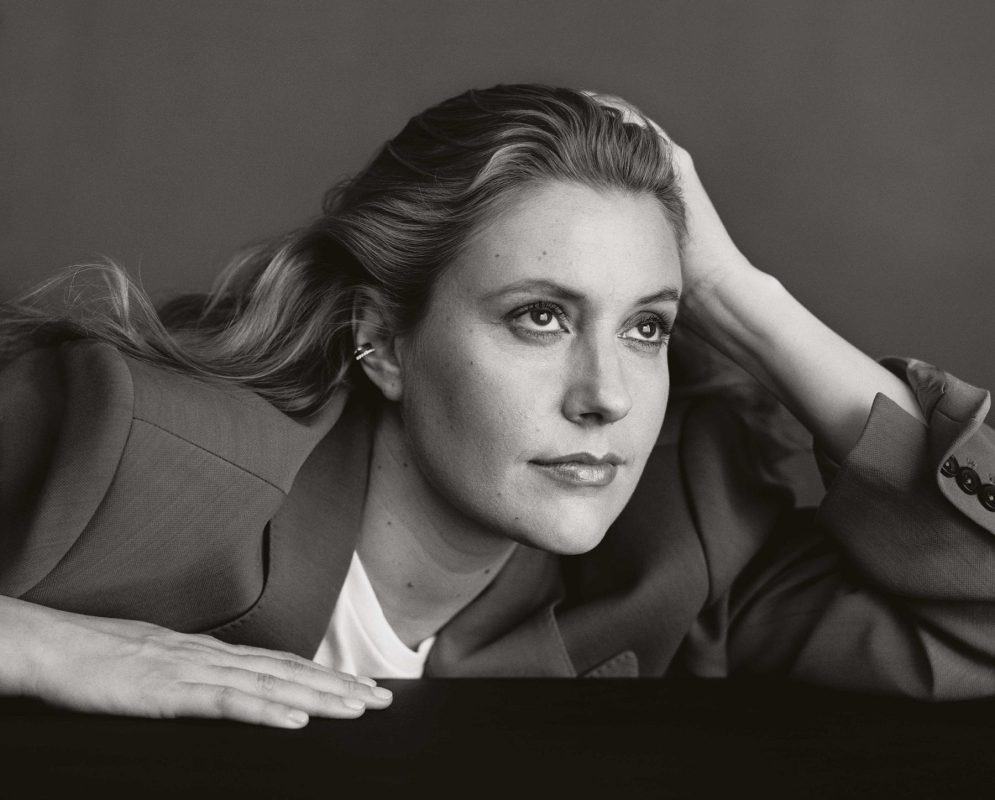
Born in Sacramento, Gerwig is slowly becoming a household name. The Oscar contender is one of only five women to be put forward for best director. For innumerable reasons, Gerwig’s films always gain mass attention.
Gerwig is truly a feminist filmmaker, portraying the female perspective through strong and curious characters who navigate their world and the circumstances that restrict them. She has created a loyal fanbase, her films serving as a form of comfort for both girls and women to relate to.
Lady Bird (2017)
Gerwig’s directorial debut, “Lady Bird” (2017) is a coming-of-age comedy following Christine McPherson, or Lady Bird, as she renames herself.
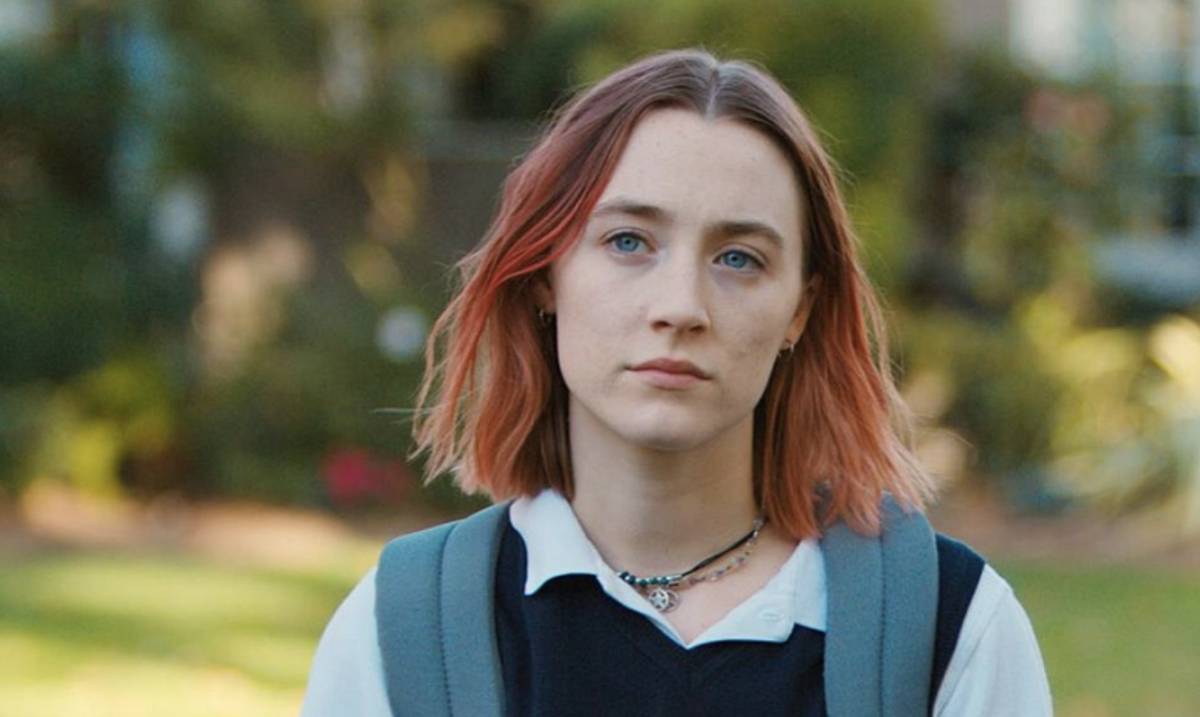
Just like Gerwig, Lady Bird, played by Saorise Ronan, is born in Sacramento. The film centres around Lady Bird as she starts her senior year at her Catholic high school in the early 2000’s. With her pink hair and dreams to escape to a college where culture lives, she is desperate to live a life that is extraordinary.
“Lady Bird” is a beautiful reflection on adolescence, identity, friendships, and appreciating where we come from. Through Lady Bird, Gerwig encapsulates girlhood experiences such as female friendships, crushes, prom, and your first heartbreak. But most importantly, Lady Bird painfully points out the complexities of mother-daughter relationships.
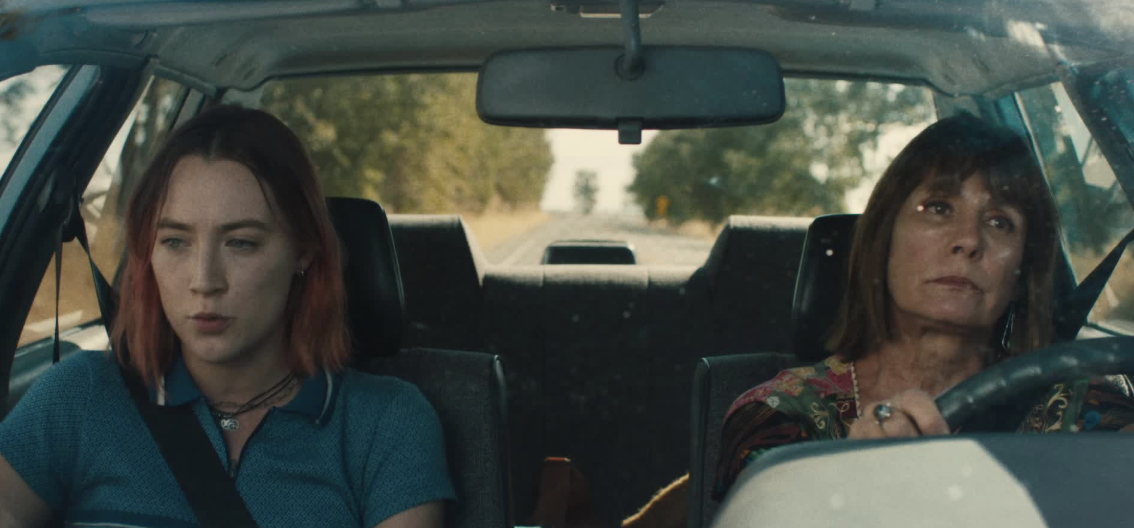
The opening scene of the film quickly showcases the rocky nature of Lady Bird’s relationship with her mother Marion played by Laurie Metcalf. We see Lady Bird and Marion driving back to Sacramento after visiting various college campuses, tearing up as they listen to their favourite audiobook in silence.
The moment is sweet, a mother and daughter sharing a tender moment, laughing together as the audiobook ends. This moment is quickly broken. Lady Bird announces that she does not want study in Sacramento. Lady Bird expresses she wants to study in New York to experience culture and art, to which Marion reacts bitterly.
Marion is quick to undermine Lady Bird’s ability to get into those colleges, and points out their family’s financial struggles. Marion further infuriates Lady Bird by accusing that she doesn’t care about anyone but herself. Lady Bird reacts in true teenage fashion by opening the car door and throwing herself out, emphasising the relatable hot and cold complexion of mother-daughter relationships.
Throughout the movie, it reveals the flaws of these characters. Lady Bird is selfish, obnoxious, and dishonest about her identity to appear cooler to her peers. Marion on the other hand, is trapped in generational trauma. Carrying the weight of an abusive relationship with her own mother, Marion struggles with an internal conflict and is unable to express her emotions, causing her to project her insecurities onto Lady Bird out of fear.
The film navigates through this push and pull, a young girl balancing family life, school, and the shaping of her identity. A mother who is afraid of her own shadow, yet carries a deep love for her daughter that she struggles to communicate.
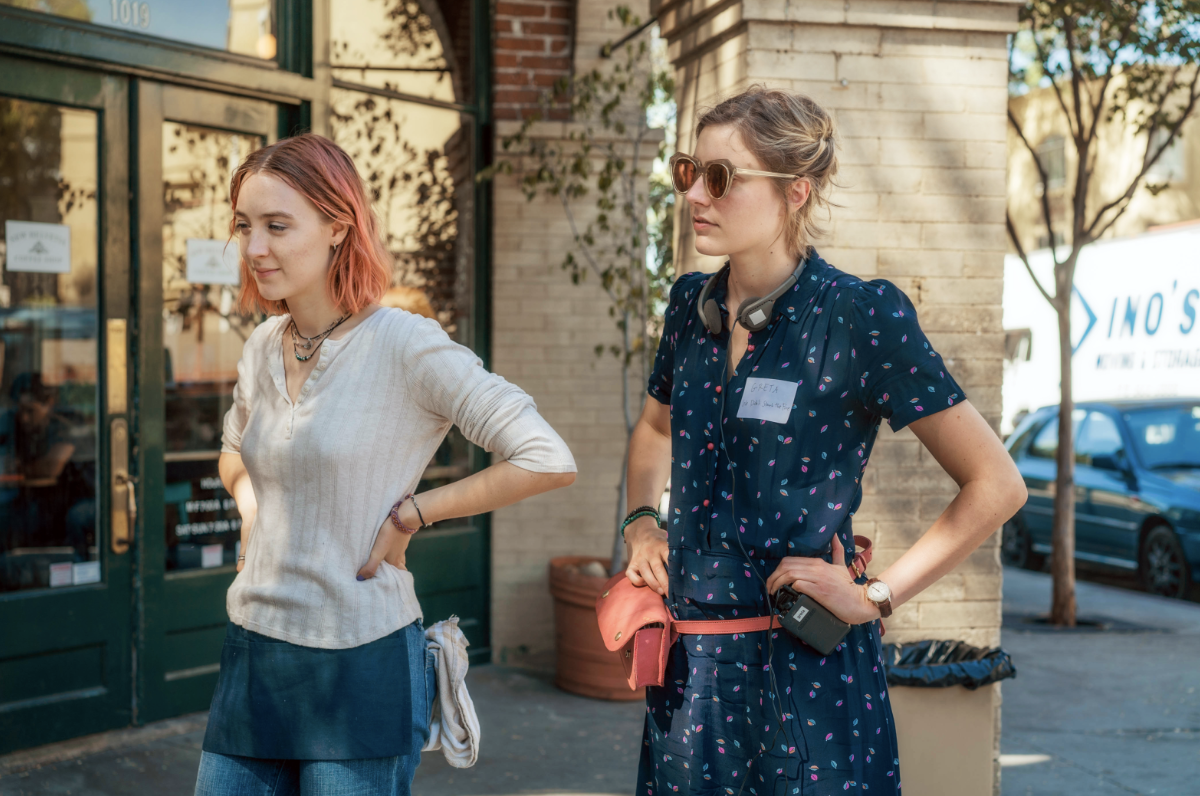
In an article on i-d, Gerwig claims, “most movies about young women are about them finding the right guy… In this movie I wanted to see what would happen if the central question was: how does she occupy her personhood?”
‘Lady Bird’ is an outstanding debut, winning 13 awards and earning tears for the girls who struggle with their own relationships with identity and their mothers. The film flawlessly sets the tone for Gerwig’s agenda and standing on the female experience that is seen in her later films.
Little Women (2019)
Gerwig’s second film is an outstanding adaptation of Louisa May Alcott’s 1868 literary classic, ‘Little Women.’
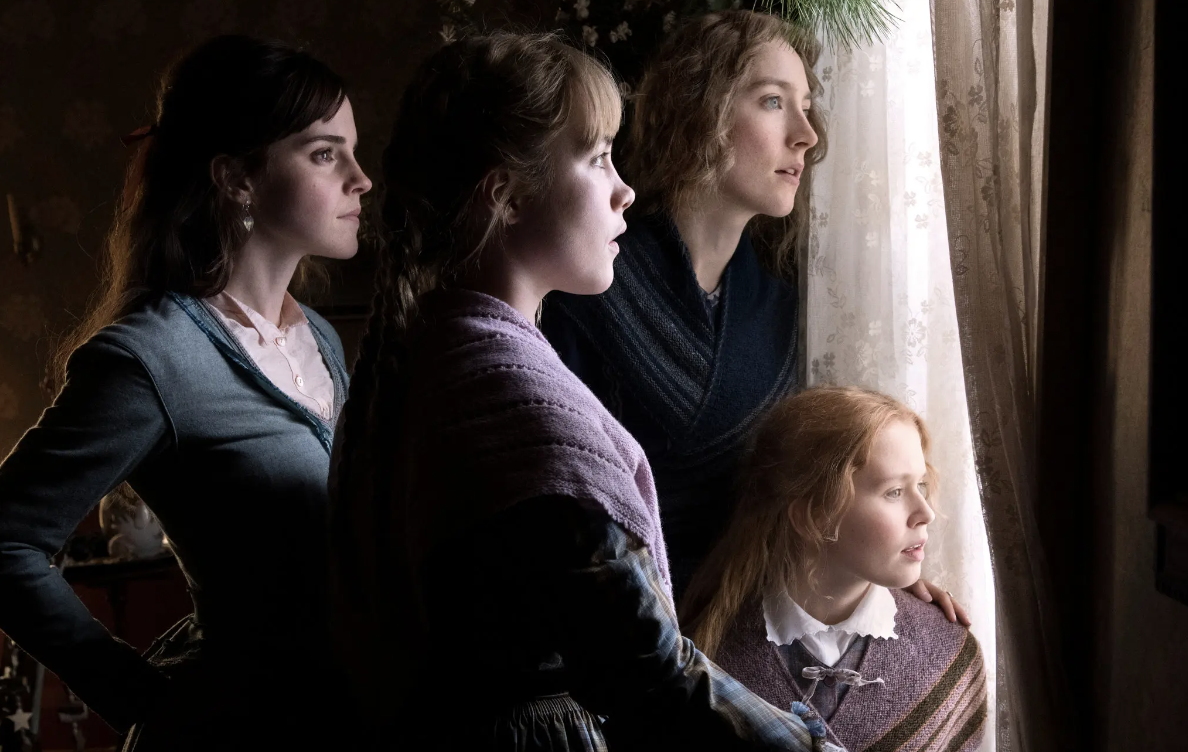
“Little Women” has been adapted many times however, Gerwig’s adaptation stands out from the rest.
The film follows the close-knit March sisters and the constraints enforced upon them as women in society. Gerwig implements her own take on the story by intercutting scenes between two timelines over a seven year period to display the growth of the sisters from young girls to women.
Although a period piece, the struggles the female characters experience still transcend to our modern times. The four sisters each have their own ambitions and aspirations, but encounter obstacles set by the patriarchy.
Jo March proclaims to her mother:
“Women have minds and they have souls as well as just hearts. They’ve got ambition and they’ve got talent as well as just beauty. I am so sick of people saying that love is just all a woman is fit for. I’m so sick of it! But—I am so lonely.”
Jo’s view on love and marriage echoes the lack of power women had in their time period. Women could not work or vote causing them to rely on men to marry even if that means they lose complete ownership of their money and children.
Her sister Amy however, sees a logic to marriage:
“As a woman, I have no way to make money, not enough to earn a living and support my family. Even if I had my own money, which I don’t, it would belong to my husband the minute we were married. So don’t sit there and tell me that marriage isn’t an economic proposition, because it is.”
By pointing out these contradicting ideas of marriage, Gerwig allows her audience to understand the difficulties women face when pursuing passions and succeeding on their own.
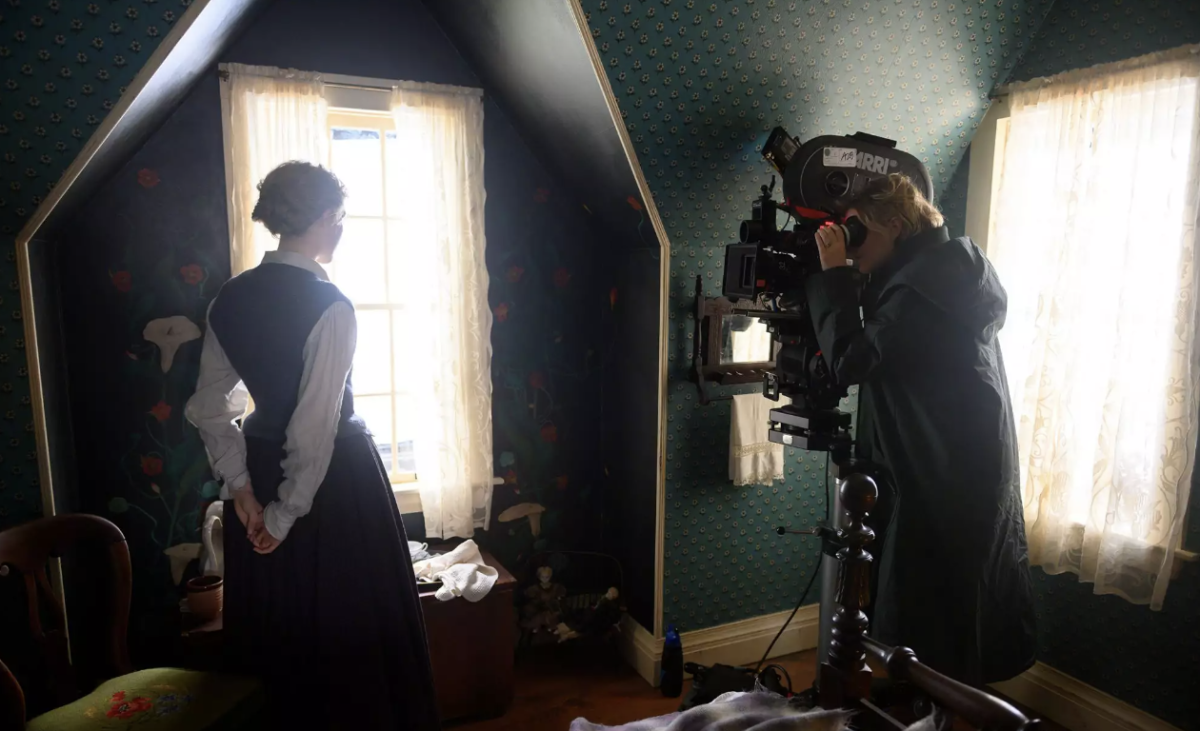
Gerwig puts her own unique meta twist to the ending of the story. Alcott’s original ending hoped to make Jo a literary spinster, however made Jo a married woman in order to please her audience and publishers to make her novel financially successful. Alcott did this as the values of her time dictated that a woman’s happy ending must end in marriage.
Gerwig’s ending pays homage to Alcott, “I wanted to give Louisa May Alcott an ending she might have liked,” Gerwig tells OprahDaily.
Gerwig does this by combining both an ending where Jo is married with children. She also gives us an alternate ending where Jo is unmarried with her novel published.
Gerwig does this to demonstrate that there are numerous ways for a woman to live a satisfying life. Her ending characterises a modern feminist take and is the reason why her adaptation stands out against its predecessors.
“In the end, when she holds her book, I wanted it to feel as triumphant as her being picked by the man. I wanted it to feel like, Oh, she got it. She got the thing,” Gerwig says.
Barbie (2023)
Gerwig’s most recent and talked about film of 2023, has turned our dull world into a pink dream.
Already sparking mixed reviews, ‘Barbie’ is Gerwig’s take on patriarchy, feminism, and the human experience.
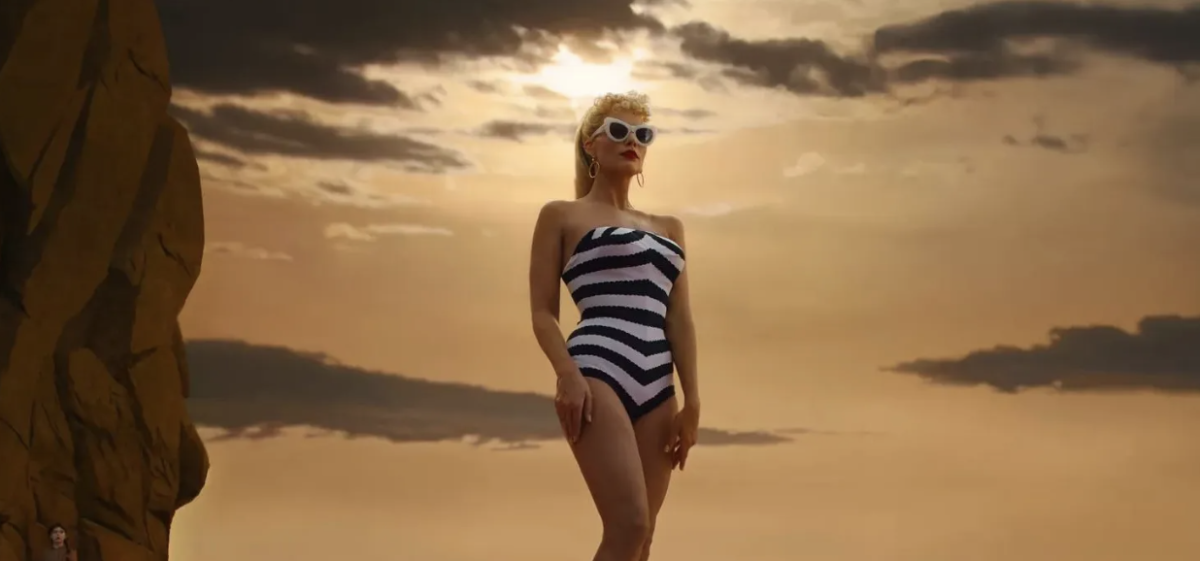
The movie opens with “A Space Odyssey” style scene, where it notes that before the creation of Barbie, the only doll little girls had available were baby dolls. These dolls push the idea of motherhood at an age where that should be the very least of a young girl’s concern.
It is then with the introduction of Barbie, it promotes that girl’s are more than just mothers, they can be anything they want to be. A doctor, an astronaut, or even a Nobel Prize winner.
In this fantastical, neon world lives the Barbies who are the rulers of Barbieworld. Alongside them are the Kens, who serve as an accessory to Barbie. He lives in Barbie’s shadow, hopelessly in love, with the only thing making his day being a smile from Barbie herself.
Barbieworld has always been this way, subverting the patriarchy. That is until both Margot Robbie’s Barbie and Ryan Gosling’s Ken enter the real world.
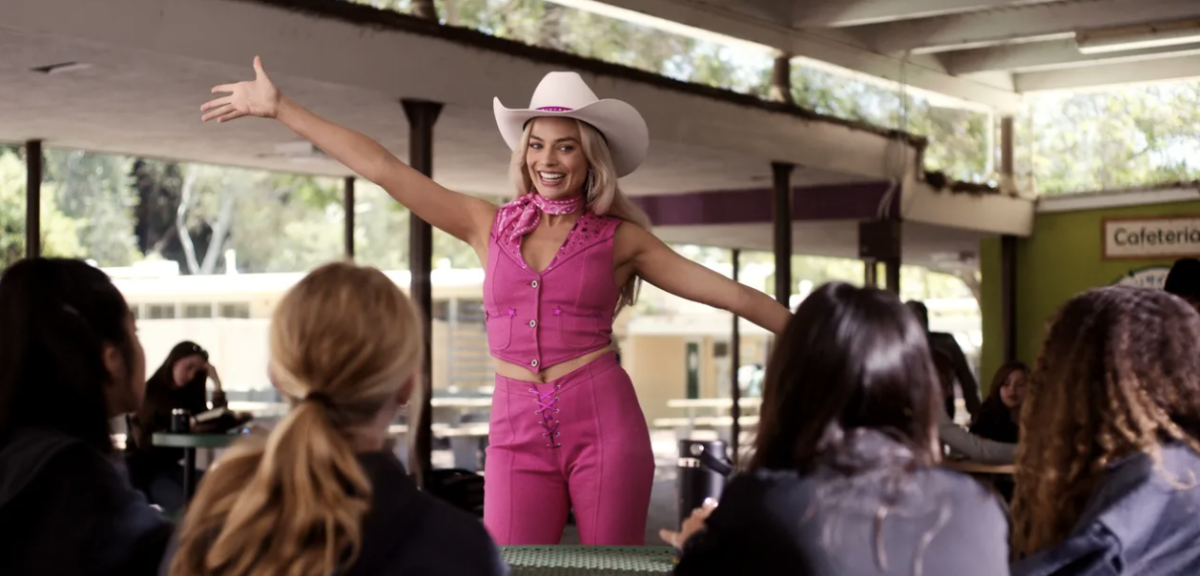
As soon as Barbie and Ken enter the real world, both the female and male experiences are put forward. Barbie is on the receving end of catcalling and assault, while Ken’s ego blows up at the attention he receives. This transition seemingly a harsh transition. That is, from the innocent and pure interaction girls experience as children to the sexualisation of their bodies as they age.
Ken’s experience in the real world is vastly different to Barbie’s. He learns the meaning of patriarchy and is quick to implement it into Barbieworld.
Instead of making his own world, Barbieworld soon becomes Kendom. The Kens start their horse-centred revolution. They infiltrate all the Barbies’ dreamhouses and forcing them into servitude, making them hand “brewskies” in maid outfits.
As Barbie comes back to what she assumes is Barbieworld, the change in scenery shocks her. It is like Barbie has never left the real world as Ken begins to treat her as his “long-term, long-distance, low-commitment, casual girlfriend.”
In trying to make things right again, Barbie has a breakdown at the realisation that she is not enough.
And next up, comes the film’s most important scene. In this scene, America Ferrera who plays Gloria, a human from the real world, performs an empowering and true monologue.
“It is literally impossible to be a woman… We have to always be extraordinary, but somehow we’re always doing it wrong… I’m just so tired of watching myself and every single other woman tie herself into knots so that people will like us. And if all of that is also true for a doll just representing women, then I don’t even know.”
It is this scene, Gerwig deeply embeds the idea that women must be great at everything. That, or we are worth nothing at all.
This is an ongoing theme present in her other films. In an article by The Gentlewoman, Gerwig notes that “Barbie” belongs to the same creative path as “Lady Bird” and “Little Women”.
The end of the film celebrates complexity of the human experience. Barbie decides to live as a human in the real world despite her experiences.
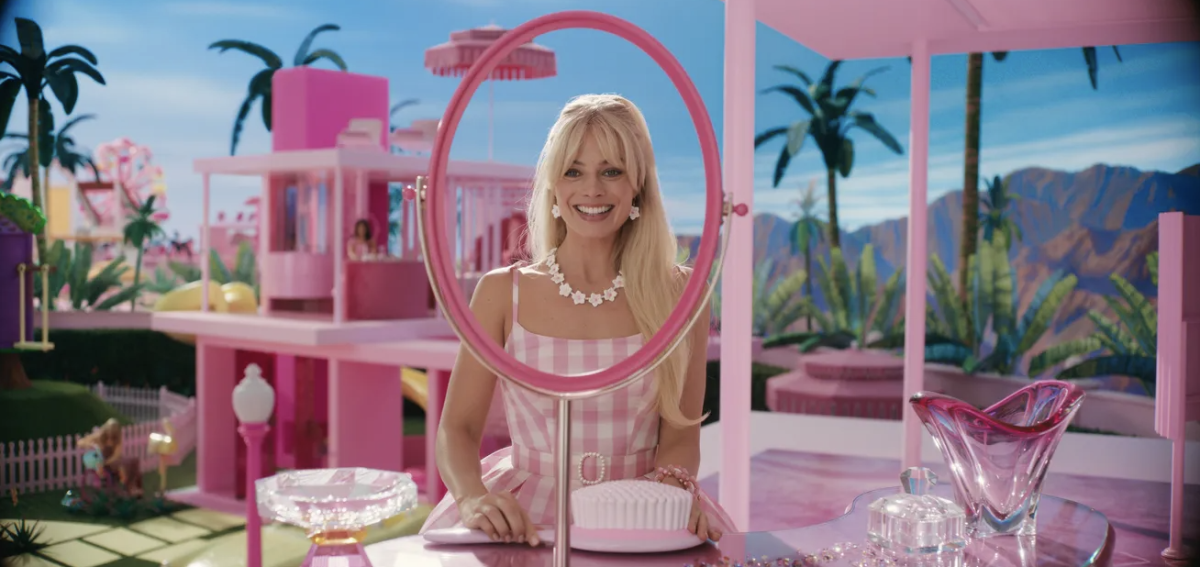
Barbie felt the wetness of tears for the first time. She felt the pain, sadness, and insecurity of being human; however she cherishes it as she would rather feel sadness than nothing at all.
Gerwig’s “Barbie”, is a love letter to woman all around the world and is a film that speaks deeply. It is a film that comments not only on female experiences. Rather, humans as a whole. As well as pointing out the inconsistencies within our society.
Revolutionising the Feminist Lens in Film
Greta Gerwig is a creative genius on the road to changing the film industry as we know it. With just three films she has made a stand for female representation and has revolutionised the female archetype in media.
Of course, there is still much to do, but Gerwig demonstrates a remarkable devotion to her craft; and this has made an incredible start in her rewriting of femininity for the big screen.
Subscribe to FIB’s Weekly Breaking News Report for your weekly dose of music, fashion and pop culture news!






